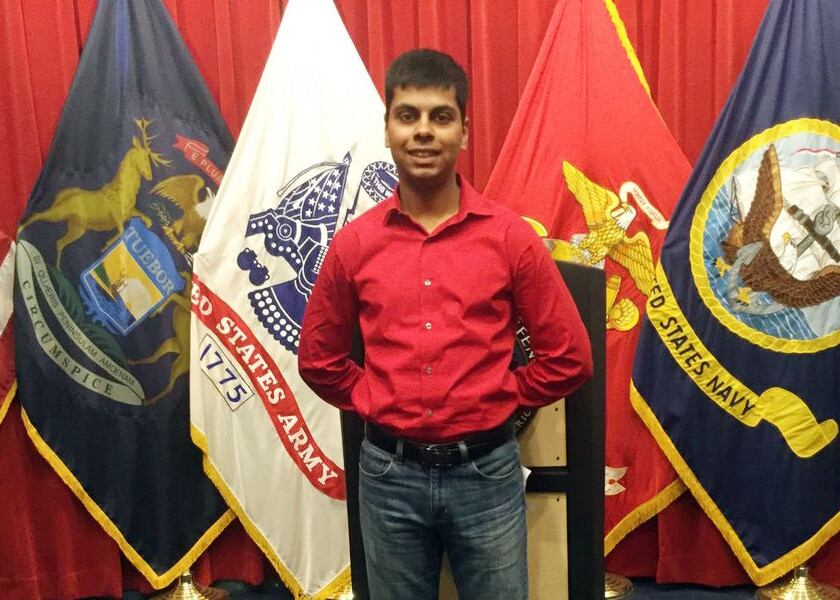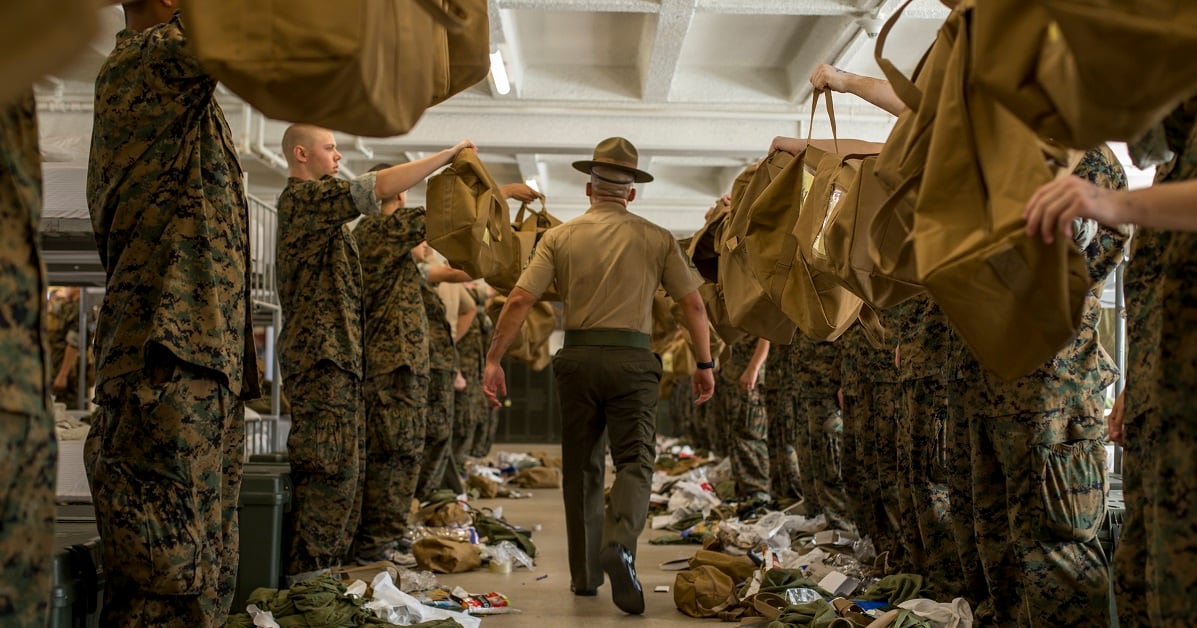The Marine Corps leads the way, at least in terms of hazing, according to a recent Pentagon study.
A 2018 report found that 256 out of 291 hazing complaints came from the Marine Corps, while 91 of the 102 substantiated hazing incidents belonged to the Corps.
The Navy was second, with 17 total complaints and 10 substantiated complaints, while the Army had 13 total complaints, none of which were substantiated, and the Air Force had five total complaints with one substantiated incident, Military.com reported.
Hazing data for the Marine Corps in 2019 showed complaints dropped to 188, while substantiated incidents were down to 47, the online news outlet said.
RELATED

Neither Military.com nor Marine Corps Times has yet received hazing numbers for the rest of the Department of Defense in 2019 as requested. Marine Corps Times is still waiting on the 2018 report from the Pentagon.
The 2018 DoD report was ordered by then-Secretary of Defense Jim Mattis as part of a reform that targeted offensive language and harassing behavior in the ranks.
“The Marine Corps is comprised of more than 230,000 active, reserve and civilian Marines, and the vast majority of them perform their duties with dedication and integrity,” Brig. Gen. Jason Woodworth, the director for the Marine Corps’ Manpower Plans and Policy Division, told Marine Corps Times in a statement. “A failure to act and respond is not only inconsistent with who we are, but it also degrades our traditions, threatens our cohesion and morale, and detracts from mission accomplishment.”
Woodworth said the Corps has taken strides in how it deals with hazing, pointing to the sudden decrease in hazing numbers from 2018 to 2019.
“We still have work to do, as the goal remains zero,” Woodworth added.
The Marine Corps has taken a more serious look at hazing within its ranks since 2016 when Muslim Marine recruit Raheel Siddiqui threw himself down a barrack stairwells at Parris Island, South Carolina, dropping 40 feet to his death.
The case led to the 2017 conviction of Gunnery Sgt. Joseph Felix and led to the exposure of multiple anti-Muslim hazing events on the island. Siddiqui’s story is currently being turned into a TV series about the Marine Corps’ culture of hazing and Islamophobia at the recruit depot.
The 2018 data did not come with any information on racial background of the victims, conditions that led to the hazing, nor any long- or short-term impacts of the hazing, Military.com reported. The data did show that the majority of the hazing offenders were white.
Under current policy the Marine Corps “aggressively” investigates all incidents of hazing, Yvonne Carlock, a spokeswoman with Marine Corps Manpower and Reserve Affairs, told Marine Corps Times.
“Hazing and other destructive behaviors, must be reviewed by the Marine’s commander and assigned a course of action within three duty days of the alleged violation,” Carlock said in an email.
Additionally, all complaints are sent to Headquarters Marine Corps where it is tracked until action is taken, Carlock added.
The Air Force and Navy similarly centrally track hazing reports, spokespeople from the respective services told Marine Corps Times. The Army has not yet responded to requests for comment about its hazing tracking regulations.
“Hazing has no place in a disciplined and professional military force and is not tolerated in any form in the Marine Corps,” Carlock said.





